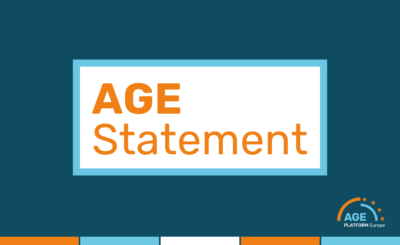
Under the title ‘Better Future for Healthy Ageing’, the 3-day conference of the Croatian Presidency on 3-5 June, examined how to transform health and care services into more digitalized, long-term, integrated and personalized care models. The event, coordinated by Public Health School of Zagreb, was initially scheduled early April in the Croatian capital, but due to the COVID-19 pandemic, it was postponed and held online.
“It is at the heart of our European values to make sure our elderly receive the healthcare they deserve, in a non-discriminatory, respectful way (…) Protecting the vulnerable is, and will remain, an essential part of our common European values”, reminded Dubravka Šuica, European Commission’s Vice-President for Democracy and Demography in her opening speech. Ms Šuica further underlined how much the results of the conference will be key to inform the future Green Paper on Ageing, to be delivered by the European Commission early 2021.
“COVID19 highlighted the importance of addressing demographic challenges”, she added, while providing some hints on the orientation of future actions and initiatives of the European Commission in relation to population ageing . These includes:
- Address demographic change also from a geographical perspective, paying attention to the situation in rural areas.
- Adopt a life course perspective of social protection systems: from labour to long-term care, underlying how much accessibility, affordability and quality of the latest are key issues.
- Ensure respect for non discrimination principle in access to healthcare for older persons.
- Invest in health promotion and disease prevention throughout the lifespan to improve active and healthy ageing.
- Support digitalisation notably in the care sector, while paying attention to digital gaps and inequalities.
- Develop the Silver Economy.
The Commission’s Vice-President concluded with a strong message: “COVID-19 has reminded us all that we live in a world of uncertainty and risk. Our best protection is to invest in resilience.”
WHO Director for Europe, Dr. Hans Kluge, put emphasis on the dire impact of the COVID-19 pandemic while also praising the “incredible examples of innovation, resilience and collaboration for, with and by older people.” He also shed lights on the fact that long-term care has often been notoriously neglected and that clear investment is needed for setting up integrated, person-centred long-term care systems in each EU country.
On the second day of the event, AGE was invited to lead and chair the session on “Modern Urban Planning in the Service of Healthy Ageing”. It was the opportunity to remind basic principles on which our work is built, namely the diversity of older persons and the human-rights based approach to ageing issues. ,AGE Policy Coordinator for Health, New Technologies and Accessibility, Julia Wadoux, also highlighted how much age-friendly environments are key to improve healthy ageing and support older persons, with a focus on some critical challenges: social isolation, social exclusion, living/ageing in place and accessibility. Julia made here a clear link to the work of the WHO and notably the forthcoming Decade of Healthy Ageing.
For more information:
- Website of the event: https://bfha2020.hr/
- Conference proceedings (incl. full speech of Vice-President Suica and Dr. Hans Kluge, summary of Julia Wadoux presentation)
The live recordings of the presentation will be made available by end June.
For mre information on this event, please contact: Julia Wadoux, Julia.wadoux@age-platform.eu






